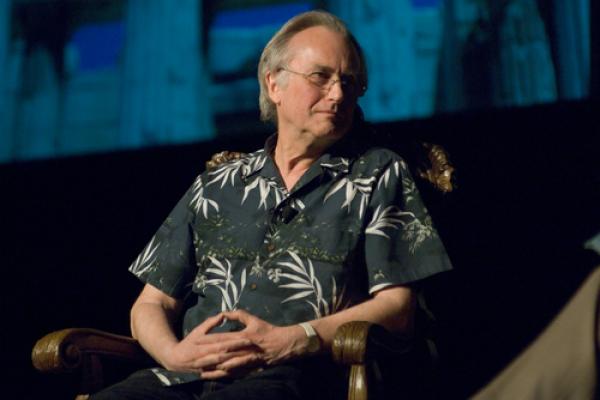Some read Romans 13 and lean toward faith being a personal thing (pay your taxes and don’t break the laws, avoid sexual immorality, debauchery, jealousy, and instead clothe yourself with Christ), but the chapter also says God has established government as his “servant to do good.”
This is why, in a country where the public is encouraged to participate in government, I want to encourage people of faith to voice the heart of God when it comes to issues like feeding the least of these.
Suddenly, unexpectedly, and almost miraculously, the values of simplicity, humility, welcome, and the priority of the poor have burst on to the international stage. A new pope named Francis is reminding us that love is also a verb — choosing the name Francis because of his commitment to the poor, to peace, and creation in sharp contrast to the values of Washington, D.C.
Last week the House of Representatives voted to cut food stamps. The previous week marked the 5th anniversary of the financial collapse, and showed more American inequality than before the recession. And now we face a threatened shutdown of the government unless the health care promised to tens of millions of uninsured people is repealed.
Pondering all that, I saw the interview with Pope Francis in America magazine and his profile in the new issue of Sojourners. And from every direction, things that the new pope was saying were breaking through the political news cycle. Even my students at Georgetown were telling me that their young friends, Christians or not, were putting Francis quotes up on their Facebook pages.
It's odd that Christians — people who claim to believe that God created the earth, sustains it day by day, and intends to create a new earth — are often so mixed up about sex and food. How long would the earth's inhabitants last without coupling and eating?
And yet most Christian writers right up to the 16th century praised celibacy, sexless marriages, and arduous fasting. Bless Martin Luther for loving his wife (and the beer she brewed), but lots of us still seem to think that good sex and good food — if not actually sinful — are at least pretty low on the religious values hierarchy.
Has it escaped our attention that, according to our most sacred literature, God made a naked male and a naked female, put them in the midst of grain fields and orchards, and told them to multiply?
I signed up for Medicare last month. In addition to standard Medicare, I added Part D, the prescription drug benefit. My 2013 costs, if they had covered the entire year, would have come to $529 for insurance and $330 for prescription copays.
Today's mail brought the rates for 2014. The insurance premium has increased to $650, or by about 23 percent. Copays have also increased, to $616, or by nearly 87 percent. The total increase — assuming I won't need any additional medications — comes to 47 percent.
I was not happy when President Bush proposed and AARP supported Medicare Part D, the prescription drug benefit. The idea of insuring seniors' drugs was good. The resulting law, which specifically forbids the federal government from negotiating prices with pharmaceutical companies, was insane.
“Don’t ask yourself what the world needs; ask yourself what makes you come alive, and then go do it. Because what the world needs is people who have come alive.” - Howard Thurman + Sign up to receive our quote of the day via e-mail
There is an old Christian hymn that has the lyrics "They'll know we are Christians by our love." It was written in the late 60s and was inspired by the Bible verse John 13:35, where Jesus says, "By this everyone will know that you are my disciples, if you love one another." (NIV)
Really? We're supposed to be able to tell the difference between Christians and non-Christians? And the difference is love?!
In reality, it's not nearly that simple, and the fact is, there’s no visible difference.
If you were to go to the grocery store, a football game, the gym, a school, or your work, there would be no obvious way of identifying — through actions — who is a Christian and who isn't, and we should be careful not to judge.
Some of the kindest, nicest, authentic, and wonderful people I know don't believe in Jesus. Contrarily, there are some horrible, mean, and downright disgusting Christians.
First things first: with all due respect to interim host John Oliver, I for one am thrilled to have Jon Stewart back on The Daily Show. I know it is sad to say, but I actually missed him while he was on summer hiatus. Welcome back, little buddy!
Last night, Stewart interviewed Richard Dawkins, author of The God Delusion, who was promoting his newest title, An Appetite for Wonder. The most interesting moments in the interview revolved around Stewart’s question to Dawkins about whether science or religion ultimately would be responsible for hastening our journey down this path of apparent self-annihilation. What followed was a fascinating, if not entirely satisfying, dialogue about the “downsides” of both disciplines.
Shortly after teenagers beat up a Columbia University physician Saturday, a Muslim woman was attacked a few blocks away.
It is not clear whether the attacks on Dr. Prabhjot Singh and the Muslim woman, who were both treated at Mount Sinai Hospital in New York, are related. But many say the motives, if not the perpetrators, are depressingly familiar.
They are part of a long line of assaults on Sikhs, who are sometimes mistaken for Muslims; on Muslims; and, more generally, on people perceived as foreigners.






